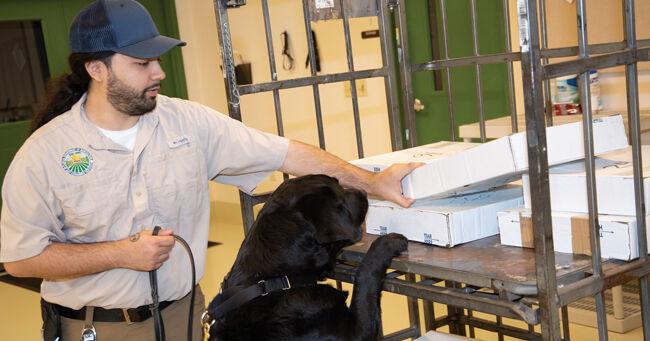Detector Dogs: Agricultures Best Friend
3 minute readPublished: Monday, June 16, 2025 at 5:00 am

**Detector Dogs: Protecting America's Food Supply**
The U.S. Department of Agriculture (USDA) employs a specialized canine force to safeguard the nation's agricultural sector. The Animal Plant Health Inspection Services (APHIS) Detector Dog Program utilizes breeds like beagles, Labrador retrievers, and Jack Russell terriers to detect and prevent the entry of harmful agricultural products. These dogs are deployed at international airports, mail facilities, and border crossings across the country.
The program, established in 1984, has grown significantly. Detector dogs are trained to identify banned fruits, plants, and meats that could carry damaging insects and diseases, threatening the country's agricultural production and natural resources. The dogs undergo an intensive 8-10 week training program with their handlers.
These canine units patrol ports of entry, borders, and airports, working to keep invasive pests out of the country. Their work includes protecting fruit crops, such as citrus orchards along the Texas-Mexico border.
The APHIS Detector Dog Program also collaborates internationally, providing guidance, training, and testing to countries like Canada and Taiwan. Detector dog teams are also stationed in the Pacific, working to prevent invasive species from reaching Hawaii.
A detector dog typically serves for 6-8 years before retiring at the age of nine. The dogs are often adopted by their handlers upon retirement, with a successful adoption program ensuring all dogs find suitable homes. The program actively seeks new recruits, partnering with animal shelters, rescue groups, and private individuals. Ideal candidates are between 1-3 years old, heartworm negative, possess a strong food drive, and are both environmentally and socially friendly.
BNN's Perspective:
The Detector Dog Program is a valuable investment in protecting American agriculture. The program's success highlights the importance of proactive measures in preventing the spread of invasive species and diseases. While the program's focus on canine detection is effective, it is important to balance these efforts with other strategies, such as public education and international cooperation, to ensure a comprehensive approach to agricultural protection.
Keywords:
Detector dogs, USDA, APHIS, agriculture, invasive species, canine detection, airports, borders, training, fruit, plants, meats, pests, retirement, adoption, animal shelters, biosecurity, food safety, national security